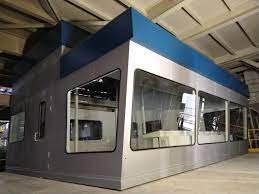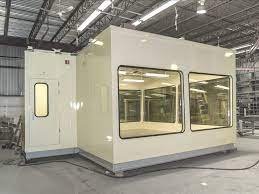Supervisor – Control Room (Steel Melting Shop)

In the intricate ecosystem of a steel melting shop, the control room stands as the nerve center, orchestrating a symphony of processes vital to the production of high-quality steel. At the heart of this control room, supervisors play a pivotal role, ensuring seamless operations, maintaining safety standards, and optimizing productivity. This article delves into the multifaceted responsibilities of supervisors in the control room of a steel melting shop and explores how their expertise contributes to the success of the facility.
Understanding the Control Room:
The control room of a steel melting shop serves as the command post where various operations are monitored, controlled, and coordinated. It integrates sophisticated technology, including sensors, monitors, and control systems, to oversee the entire steelmaking process, from raw material handling to the casting of finished products.
Roles and Responsibilities of Supervisors:
- Process Monitoring and Control: Supervisors in the control room are responsible for continuously monitoring critical parameters such as temperature, pressure, and chemical composition throughout the steelmaking process. They utilize advanced control systems to make real-time adjustments, ensuring that the production remains within specified parameters and quality standards are met.
- Troubleshooting and Decision Making: In the event of equipment malfunctions, process deviations, or emergencies, supervisors must act swiftly to diagnose issues and implement corrective measures. Their ability to make informed decisions under pressure is crucial in minimizing downtime and preventing costly disruptions to production.
- Safety Oversight: Safety is paramount in the steel melting shop, where workers are exposed to high temperatures, heavy machinery, and hazardous materials. Supervisors enforce strict safety protocols, conduct regular inspections, and provide guidance to ensure a safe working environment for all personnel.
- Training and Development: Supervisors play a key role in training new operators and technicians, imparting essential knowledge about equipment operation, safety procedures, and troubleshooting techniques. They also facilitate ongoing training programs to enhance the skills and competencies of existing staff, keeping them abreast of the latest technologies and best practices.
- Performance Optimization: With a keen eye on efficiency and productivity, supervisors analyze production data, identify bottlenecks, and implement strategies to streamline workflows and maximize output. They collaborate with engineers and maintenance teams to fine-tune processes, minimize energy consumption, and optimize resource utilization.
Challenges Faced by Supervisors:
Despite their expertise and diligence, supervisors in the control room of a steel melting shop encounter numerous challenges in fulfilling their responsibilities:
- Complexity of Operations: The steelmaking process is inherently complex, involving multiple stages and interdependent variables. Supervisors must possess a deep understanding of metallurgy, process engineering, and automation to effectively manage operations.
- Technological Integration: The rapid advancement of technology introduces new tools and systems into the control room, requiring supervisors to continuously update their skills and adapt to evolving interfaces and software platforms.
- Safety Risks: Working in close proximity to molten metal, intense heat, and heavy machinery exposes supervisors to inherent safety risks. Vigilance, adherence to safety protocols, and ongoing training are essential to mitigate these risks effectively.
- Pressure to Meet Targets: In a highly competitive industry, there is often pressure to meet production targets while maintaining quality standards and cost efficiency. Supervisors must balance these competing priorities while ensuring the well-being of their team and the integrity of the production process.

The Path to Excellence:
Despite the challenges they face, supervisors in the control room of a steel melting shop have the opportunity to make a significant impact by leveraging their skills, knowledge, and leadership abilities. Continuous learning, collaboration with cross-functional teams, and a commitment to safety and quality are essential ingredients for success in this dynamic role.
Conclusion:
The control room of a steel melting shop represents the nerve center of a complex and critical industrial operation. Supervisors stationed in this control room play a pivotal role in ensuring the smooth and efficient functioning of the facility, while prioritizing safety, quality, and productivity. Through their vigilance, expertise, and leadership, they uphold the highest standards of operational excellence, contributing to the success and sustainability of the steelmaking industry.
